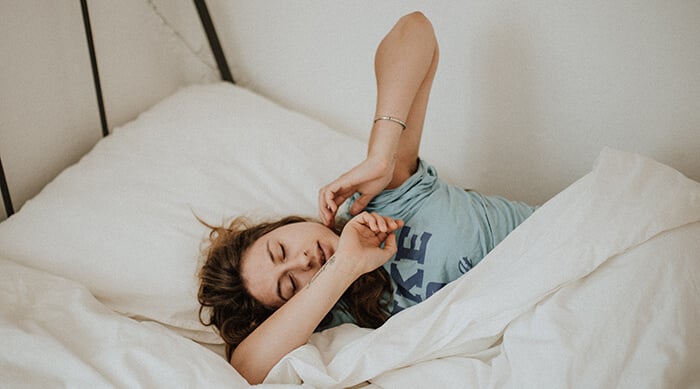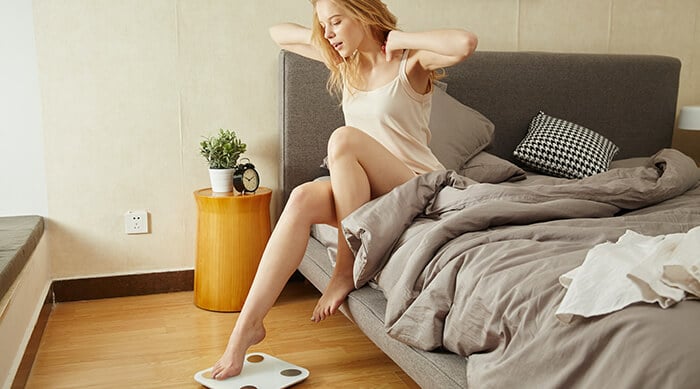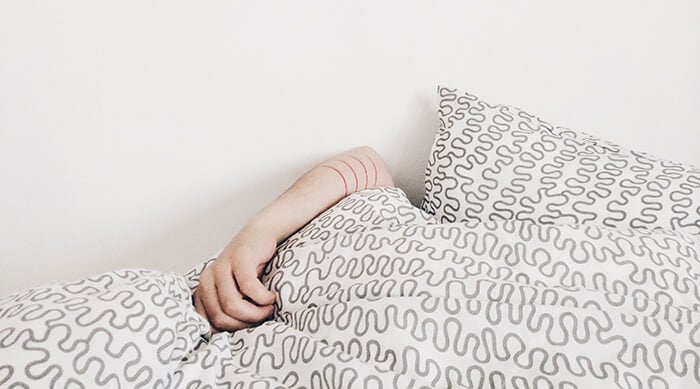How long it takes for your hormones to balance after quitting alcohol depends on your drinking habits at the moment you quit. The good news is, your body starts its detox process as soon as you stop.
Within a few weeks, most moderate drinkers should see overall health improvements, including positive impacts on hormone levels. If you quit after years of heavy drinking, though, it may take years for your hormones to get back to where they should be.
While there’s no straightforward answer to how long it should take to get back to normal hormone balance, we can learn how alcohol affects hormones.
Table of Contents
How Drinking Impacts Hormones (Short/Long Term Effects)
How Drinking Impacts Hormones
Can drinking alcohol cause hormonal imbalance? Drinking alcohol can cause hormonal imbalance directly and indirectly. It can force changes to the endocrine system, the system responsible for your hormones, and interfere with other systems in the body.
The impact of alcohol on hormones is more prominent in people with a history of binge drinking or chronic heavy drinking, but any amount of alcohol can cause hormonal changes.
Short-Term Effects of Alcohol on Hormones
Alcohol temporarily increases levels of serotonin, a neurotransmitter that functions as your “feel good” hormone. A quick boost in serotonin can feel like an instant mood lift and lower inhibitions, but those effects are short-lived.
Studies show that in cases of alcohol addiction or heavy alcohol use over time, serotonin production decreases. It’s a big factor in why people struggling with alcohol abuse are at an increased risk of anxiety disorders and depression.
Drinking also releases dopamine in the body. That’s another neurotransmitter responsible for your body’s reward responses. When you drink, it’s like telling your nervous system that something great is happening, and you should get a reward in the form of a feel-good response.
That may be fun in the short-term, but it’s also why addiction recovery is so hard for those with an alcohol use disorder. Your brain wants to chase that dopamine high.
Even for those without substance abuse problems, spikes in dopamine can increase cravings for both alcohol and other things we enjoy after that last drink, like junk food.
Long-Term Effects of Alcohol on Hormones
In the long term, heavy drinkers may begin to feel more serious hormonal effects, including an increase in physical and mental stress. Much of that is linked to alcohol’s effects on cortisol, the stress hormone.
Cortisol regulates how your body responds to stress. Your body produces more of it when it’s faced with stressors like anxiety, fear, or in this case, heavy drinking.
Too much cortisol can mess with your immune system, stall your metabolism, and disrupt your digestion — think stress poops. It can also raise your blood pressure, increase your risk of heart disease, cause aches and pains, and affect glucose levels.
That last bit is important for those with diabetes. Alcohol can induce insulin resistance and make it harder for you to get accurate blood sugar readings.
Less directly, alcohol can cause liver disease like cirrhosis, and an inefficient or damaged liver doesn’t just struggle to metabolize alcohol. It can’t metabolize your hormones as efficiently. This can lead to all kinds of issues related to imbalanced hormones, like reproductive concerns.
Sex Hormones & Alcohol
The effects of alcohol on hormones can look different depending on whether you have male or female sex hormones. Short-term impacts can usually be reversed, but there are some serious health implications to consider with long-term chronic drinking.
Impact on Male Hormones
Chronic drinking can reduce testosterone levels and increase estrogen in males. Low testosterone can mean decreased sperm production or an overall decrease in quality sperm. Too much estrogen can lead to gynecomastia, a condition that causes men to grow breast tissue.
In younger men, especially in cases of underage drinking, too much alcohol can cause long-lasting damage to the reproductive organs and infertility down the line. That’s related to alcohol’s effect on organs that may not be fully formed yet at the age they started drinking.
Impact on Female Hormones
Is drinking alcohol bad for a woman's hormones? Drinking alcohol can be bad for a woman’s hormones, particularly during key moments in a woman’s reproductive health.
In cases of underage drinking, alcohol can delay puberty. This doesn’t just mean young girls may get their periods later. It can affect everything from bone health to fertility later on.
In women of drinking age, alcohol can raise estrogen levels to the point where they disrupt menstrual cycles and normal reproductive function. That can make it harder for some women to get pregnant and stay pregnant, and cause early menopause for some.
Higher levels of estrogen are also linked to an increased risk of breast cancer, particularly in post-menopausal women. That’s why women already at a high risk for breast cancer may choose to abstain from alcohol altogether or choose non-alcoholic alternatives, instead.
Hormones also contribute to why women get drunk faster than men. Studies show that women feel the effects of alcoholic drinks more acutely the week before their period.
Signs of Hormonal Imbalance
A hormonal imbalance can look different for men and women. Women with a hormonal imbalance may experience changes in their periods, excessive body hair, hot flashes, and vaginal dryness. Men may experience hair loss, erectile dysfunction, enlarged breasts, and a loss in body mass.
All of these uncomfortable and at times embarassing symptoms can be reduced with more mindful drinking habits. Here are a few signs to watch out for more broadly:
- Skin problems, e.g. dry skin and acne
- Decreased sex drive
- Infertility
- Low energy levels
- Sleep pattern disruptions
- Changes in heart rhythm
- Aches and pains
- Frequent headaches
- Brain fog
- Mental health concerns, e.g. anxiety/depression
- Problems regulating body temperature
- Digestive issues
- Unexplained weight loss/gain
5 Things You Can Do for Hormonal Balance
How do I balance my hormones after drinking? You can balance your hormones after drinking by adopting a healthier lifestyle, including healthy diet, adequate exercise, quality sleep, and reducing your stress levels.
Those lifestyle changes can continue until you start feeling better or come with a longer term plan. It all depends on the health problems or side effects you’re dealing with related to your hormones.
1. Eat a healthy diet.
A balaced diet, rich in protein, fiber, and healthy fats, is a great way to start balancing your hormones naturally. Fiber in particular is linked to healthy levels of estrogen. In women, that can mean a lower risk of breast cancer.
Reach for wellness drinks like green tea instead of alcohol, or replace your wine habit with a non-alcoholic version.
2. Move more.
Regular exercise can beat fatigue — we know that sounds counterintuitive, but it’s true! — and combat stress. It’s also a natural way to boost dopamine and reduce mood swings. Start with a regular walking routine or a morning yoga session if you’re not active already.
3. Reduce your stress.
You already know the effects of alcohol on cortisol. Even if you’ve reduced your wine intake, you should still work hard at reducing overall stress on the body. Carve out time to do more of the things you love. Pick up a hobby that makes you feel good. Focus on a good work-life balance.
4. Get better sleep.
We know it’s easier said than done if you’re already dealing with bad sleep, but sleep disruptions affect both your stress hormones and melatonin, your sleep hormone. Melatonin helps your body move through the sleep-wake cycle.
Seek help from your primary care doctor if you think you have a sleep disorder. If you find that you’re sleeping worse after drinking, that’s a thing. Too much drinking can keep you from getting the sleep you need to feel your best in the morning.
5. Lay off the alcohol.
Moderate alcohol consumption is usually fine for healthy adults, but if you’re worried about the well-being of your hormones, quitting drinking can help return your body to balance.
If you’re not sure how to stop drinking or worried about excessive alcohol use in your life or that of your loved ones, contact these support groups for addiction treatment:
They can help you work through alcohol withdrawal symptoms, as it can be dangerous to go cold turkey if you have alcohol dependence.
If you love a glass of wine from time to time but are worried about the impact of alcohol on your hormones, we have a quick fix for you. Surely’s non-alcoholic wine comes with all of the good things about wine without a side of the health issues.
Try a bubbly can of our fruit-forward red blend for something a little different or a bottle of our non-alcoholic sauvignon blanc for something familiar.
Sources
- Serotonin’s Role in Alcohol’s Effects on the Brain
- The Role of Dopamine and Its Dysfunction as a Consequence of Oxidative Stress
- The Relationship between Alcohol Consumption and Cortisol Secretion in an Aging Cohort
- Alcohol and fertility: how much is too much?
- Alcohol’s Effects on Male Reproduction
- Alcohol’s effects on female reproductive function
- Alcohol consumption, endogenous estrogen and mammographic density among premenopausal women
- Response to alcohol in women: role of the menstrual cycle and a family history of alcoholism
- Dietary fiber intake and risk of hormonal receptor-defined breast cancer in the European Prospective Investigation into Cancer and Nutrition study




